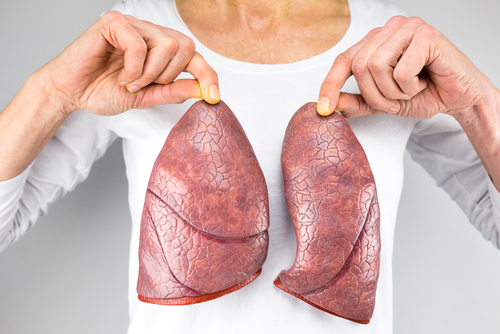Analysis of Phase 3 Trial Data Shows Benefits of Esbriet for More Advanced IPF Patients
Written by |

Treatment with Esbriet (pirfenidone) can effectively benefit patients with idiopathic pulmonary fibrosis (IPF) who have more advanced lung function impairment, by preventing a decline in exercise capacity and worsening of shortness of breath (dyspnea).
Those findings, taken from additional analysis of Phase 3 clinical trial data, were discussed at the CHEST Annual Meeting, held in San Antonio, Texas, Oct. 6-10. The oral presentation was titled “Effect of Pirfenidone on Exercise Capacity and Dyspnea in Patients with Idiopathic Pulmonary Fibrosis (IPF) and More Advanced Lung Function Impairment.”
Researchers reviewed clinical data collected during the ASCEND (NCT01366209) and CAPACITY (NCT00287716 and NCT00287729) pivotal Phase 3 trials from more than 170 patients who had more advanced pulmonary disease. These patients had severely reduced respiratory function, as determined by percent predicted forced vital capacity (%pFVC) below 50%, and carbon monoxide diffusing capacity (DLCO) below 35%.
During the trials, 90 patients were treated with 2,403 mg per day of Esbriet (marketed by Genentech), and the remaining 80 patients received a placebo.
Upon 52 weeks (one year) of treatment, results of the 6-minute walk distance (6MWD) test (assessing exercise capacity) showed that Esbriet-treated patients had a reduced decline in exercise capacity compared to those taking placebo.
Specifically, the baseline median 6MWD (the distance a patient can quickly walk on a flat, hard surface in six minutes) was 385.5 meters (421 yards) in the Esbriet group, and 375.5 meters (410 yards) in the placebo group; after one year, patients in the Esbriet group showed a median decrease of 34 meters (37 yards), whereas the placebo-treated group had a median decrease of 81.5 meters (89 yards).
Collectively, 43.3% of patients who received Esbriet experienced a 6MWD decline equal or above 50 meters (54 yards) or death by week 52, which was a significantly lower proportion than the 61.5% reported in the placebo-treated group.
The Pulmonary Fibrosis News forums are a place to connect with other patients, share tips and talk about the latest research. Join today!
In addition, evaluation of patients’ dyspnea, through assessment of the University of California–San Diego Shortness of Breath Questionnaire (UCSD SOBQ) total score, revealed that Esbriet treatment could prevent the worsening of this symptom by eight points compared to placebo. (The higher the score, the worse is the patient’s dyspnea.)
After completion of the 52 weeks of treatment, patients treated with Esbriet showed a median change in UCSD SOBQ total score of 17 points more compared to baseline values, while the placebo group experienced a change of 21.5 points.
Overall, this post-hoc analysis showed that the proportion of patients with an increase in UCSD SOBQ total score equal or greater than 20 points or death was significantly lower in the Esbriet group (43.8%) compared to placebo (57.5%).
“These results suggest that pirfenidone [Esbriet] has clinically meaningful benefits on both exercise capacity and dyspnea in patients with IPF and more advanced lung function impairment,” the researchers concluded.
Of note, the study was funded by Genentech and Roche.



